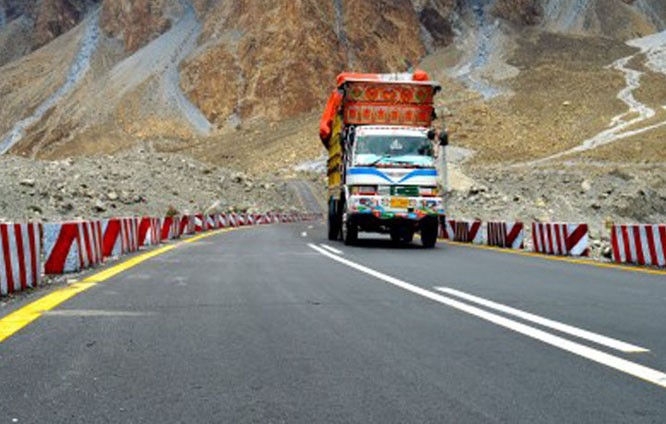
The province is in a never-ending state of limbo

As five statutory members of the National Finance Commission (NFC) begin the process of preparing the 9th NFC award, Gilgit Baltistan (G-B) and Azad Jammu and Kashmir (AJK) remain uncertain of the fate of their funding, as the two areas, not being a part of the NFC, are not allotted a direct share in the NFC award.
According to Article 1 of the Constitution of Pakistan, AJK and G-B areas do not enjoy the status of federating units, hence their funding needs are met by the federal government from its own share from the NFC, which is 42.5 per cent currently. It has recently been proposed by the centre that the size of the gross federal divisible pool be cut by 7 per cent to meet ‘additional expenses’ out of which 4 per cent should be allotted directly for the development of G-B, AJK and Fata. However, negotiations over this matter have largely remained suspended.
Chief Minister G-B, Hafiz Hafeezur Rahman, says talking to TNS, "the major source of revenue for G-B currently is federal funding, which is provided through two channels -- Public Sector Development Programme (PSDP) and block payment to the Ministry of Kashmir and Gilgit Baltistan (KGB) in the form of development and non-development funds. The funds transferred via the Ministry of KGB are on the discretion of the ministry due to which the long-term sustainability of this funding mechanism is uncertain." In March 2012, it was announced that the G-B government would also impose taxes as a means of generating its own revenue.
According to CM G-B the developmental funds allotted to them by the federal government in the last tenure have now been reduced from Rs20 billion to Rs15 billion by the current government. "We are at the disposal of the federal government. If they are with us they help us, but if the ruling party in the centre is different from the governing party in G-B then our development projects will suffer," he says.
The G-B governance order 2018 issued by the previous government, stated that the AJK and G-B will be given representation in the council of common interests (CCI) as non-statutory members, but no progress has happened in this regard. "All we want is some representation in the institutions established under the Constitution of Pakistan," the CM reiterates.
"The problem of G-B is a perpetual one and will be solved once they are absorbed in the constitution. However, there has been a notion that if we absorb them in our constitution our case in the UN regarding Kashmir might be impacted," says Salman Akram Raja, senior lawyer, who is appearing on behalf of the petitioner in the undergoing case in the Supreme Court for grant of a provisional provincial status to G-B. In 2017, there was a high level committee set up by the then PM, headed by Sartaj Aziz, where it was recommended that G-B should provisionally be made a province of Pakistan, however, there has been no progress regarding that.
Also read: Editorial
"Despite the commission’s report and an earlier SC judgement of the issue in 1999, declaring them citizens of Pakistan, it is unfortunate that the government of Pakistan has been unable to declare G-B as a provisional province of Pakistan and the province is in a never-ending state of limbo," says Raja.
The SC, on October 15, asked the federal government to take prompt decision on granting provisional provincial status to G-B in line with the recommendations of the committee led by Sartaj Aziz and submit a compliance report within 14 days.